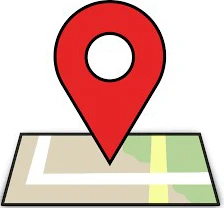Canada’s origins are more French than British, as the first European explorers were from France. French Canadians have had a centuries-long history of conquest and battle to preserve their language and culture, strongest in Quebec and parts of Atlantic Canada. This has left large parts of the country with a French cultural base that lives on in language, religion, and the arts.
Earlier this century, the French-Canadian people have been struggling. Quebec, a much larger province than France and with a population of 85% French speakers, has been at the heart of this issue. French Canadians are still fighting for their independence. They speak French, the language they use in food, culture, TV series, etc., and a trade language.
Language
French is the joint official language in Canada, but it has mutated in many ways, similar to North American English. There are some anglicisms and words relating to industries introduced by English speakers, as well as some words falling out of fashion in France that are still used in Canada. Quebecois speak various French with influences from Paris, Acadian fishers from the Maritimes, and the Saguenay- Lac-Saint-Jean region. Some examples are joual, informal and combined with English words, or a complex clear form of French that would sound like Norman accented French.
Food
The Quebecers are passionate about food and enjoy it more than their Northern European counterparts. Traditional dishes include meat pies like cipaille, salmon pie, stews with pigs’ feet, and meatballs in a rich gravy. Desserts are also vibrant. Quebecers are known for their tarte au sucres, a french dessert made with pastry dough and sugar topping.
Music
Chansoniers are folk singers in Quebec that sing ballads and folk songs with guitar. The songs convey optimism and love for their homeland but can be sad or emotive. Gilles Vigneault is one such singer who created “Quebec’s national anthem” Mon Pays. Acadian singers are also chansonières, including Edith Butler and Angèle Arseneault, who vividly evoke the sadness and joy of life on the sea.
Faith
A majority of the first settlers in French Canada were devout Catholics, most of whom hoped to create a new society based on Christian principles. Some such as Paul Chomédy Sieur de Maisonneuve and Jeanne Mance were laid during this pursuit. However, much of that has waned with modernization, leaving only remnants such as huge churches. In Quebec, it even led to the lowest church attendance rate in Canada.
Nationalism
There has been a nationalist strain in Canadian patriotism and aspiration since the founding of modern Canada. The Quebecois were convinced to join the 1867 Canadian Confederation only if they could keep their faith and language. In the 1960s and 70s, this issue became more severe as some wanted complete independence as an effort of defense only gave way to assertive politics with what Charles de Gaulle claimed in 1966, “Vive le Québec! libre”
Canadian provincial elections gave power to Acadians in New Brunswick, Franco-Ontarians managed schools, and Manitobans got their provincial governments to translate all statutes into French. Quebec achieved this nationalist resurgence, and René Lévesque and the Parti-Québecois won the provincial election in 1976. The party took care of local elections and held two referenda on independence. Despite constant pressure from influential figures like Pierre Elliott Trudeau, the Canadian Prime Minister at the time, Quebecois said no by a narrow margin.
Symbols
The provincial emblem of Quebec has a white cross on a blue background with a white Bourbon lily. Acadians have their flag by adding a gold star to the French tricolor, symbolizing Stella Maris, named after the Virgin Mary. The patron saint of French Canada is St. Jean-Baptiste (St. John the Baptist), whose festivities are called the Fête National in Quebec, where the main day is June 24th. The celebrations take on an intensely patriotic style in Québec, where snowy owls and native flowers such as white lilies flourish.
In conclusion, Canada’s origins are more French than British. The first European explorers to arrive in the country were from France, and since then, the French Canadian community has been fighting to preserve its language and culture. This has resulted in a large part of the country’s strong French cultural influence, which can be seen in the language, religion, and arts.
